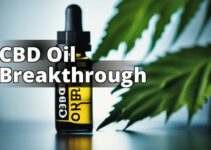By [Author Name]
Delta-9 THC, also known as tetrahydrocannabinol, is a compound found in cannabis and hemp plants that produces the intoxicating effects commonly associated with marijuana. It has been extensively researched, providing valuable insights into its effects on the human body and mind. While delta-9 THC can offer therapeutic benefits, it is important to understand its side effects and practice responsible usage.
What You Will Learn About Common Side Effects of Delta 9 THC
- The common side effects of delta-9 THC include anxiety and paranoia, dry mouth and increased appetite, impaired memory and cognitive function, red eyes and slowed reaction time, and other potential side effects.
- Tips and strategies are provided for managing these side effects, such as managing anxiety and paranoia, coping with dry mouth, and refraining from driving or operating machinery under the influence.
- Safety considerations, legality, potential addiction, and long-term risks associated with delta-9 THC are also discussed.
I. Understanding Delta-9 THC
A. Definition and Prevalence in Cannabis Products
Delta-9 THC is a psychoactive compound that interacts with the body's endocannabinoid system, producing a range of effects. It is most prevalent in marijuana, derived from the Cannabis sativa plant. Marijuana products with higher levels of delta-9 THC are associated with stronger psychoactive effects. Hemp, another variety of the Cannabis sativa plant, contains lower levels of delta-9 THC and is primarily cultivated for industrial purposes.
B. Importance of Responsible Usage and Awareness of Side Effects
When using delta-9 THC, it is essential to be aware of the potential side effects and practice responsible usage. Understanding how it affects your body and mind is crucial for a positive experience. Individual responses to delta-9 THC can vary, and some individuals may be more sensitive to its effects than others. By staying informed and mindful, you can mitigate potential risks and make informed decisions about your usage.
II. Common Side Effects of Delta-9 THC
Delta-9 THC can produce various side effects, ranging from mild to more pronounced. The severity and occurrence of these side effects can differ based on individual tolerance, dosage, and consumption method.
A. Anxiety and Paranoia
One of the most commonly reported side effects of delta-9 THC is anxiety and paranoia. While some individuals may experience relaxation and a sense of calm, others may feel increased anxiety and discomfort. This side effect is more likely to occur in individuals prone to anxiety or with a history of mental health conditions. If you are susceptible to anxiety, approach delta-9 THC usage with caution.
To manage anxiety and paranoia, start with low doses and gradually increase as tolerated. Creating a comfortable environment can help reduce anxiety. Engaging in calming activities such as deep breathing, meditation, or listening to soothing music may also alleviate anxiety symptoms.
B. Dry Mouth and Increased Appetite
Delta-9 THC can cause dry mouth, commonly known as “cottonmouth.” This side effect occurs due to the interaction between THC and the endocannabinoid receptors in the salivary glands, reducing saliva production. Dry mouth is generally temporary and subsides once the effects of delta-9 THC wear off.
Increased appetite, often referred to as “the munchies,” is another side effect associated with delta-9 THC. THC stimulates the release of ghrelin, a hormone that increases hunger. This can lead to cravings and a desire to consume more food than usual. While enjoyable for some, it is important to make conscious choices to avoid overeating.
To manage dry mouth, stay hydrated by drinking water or non-alcoholic beverages. Chewing sugar-free gum or sucking on ice chips can also stimulate saliva production. When dealing with increased appetite, make healthy food choices and be mindful of portion sizes.
C. Impaired Memory and Cognitive Function
Temporary impairment of short-term memory and cognitive function is another commonly reported side effect of delta-9 THC. This can manifest as difficulty remembering recent events, decreased concentration, and reduced problem-solving abilities. The extent of memory and cognitive impairment can vary depending on the dosage and individual sensitivity.
To cope with memory and cognitive function side effects, engage in activities that stimulate the brain, such as puzzles, reading, or learning new skills. Utilizing organizational tools, such as calendars or reminder apps, can also help compensate for potential memory lapses.
D. Red Eyes and Slowed Reaction Time
Delta-9 THC can cause red or bloodshot eyes due to its ability to lower blood pressure and dilate blood vessels in the eyes. This side effect is temporary and typically resolves once the effects of delta-9 THC wear off.
Slowed reaction time is another side effect that can impair coordination and increase the risk of accidents. Refrain from driving or operating heavy machinery while under the influence of delta-9 THC to ensure personal safety and the safety of others.
E. Other Potential Side Effects
In addition to the mentioned side effects, delta-9 THC can also cause dizziness, nausea, increased heart rate, and changes in blood pressure. These side effects can vary based on individual tolerance and dosage. If you experience severe or concerning side effects, discontinue use and consult a healthcare professional.
| Side Effect | Management Strategies |
|---|---|
| Anxiety and Paranoia | Start with low doses, create a comfortable environment, engage in calming activities such as deep breathing, meditation, or listening to soothing music |
| Dry Mouth | Stay hydrated by drinking water or non-alcoholic beverages, chew sugar-free gum, suck on ice chips |
| Increased Appetite | Make conscious choices, avoid overeating, make healthy food choices and be mindful of portion sizes |
| Impaired Memory and Cognitive Function | Engage in brain-stimulating activities, utilize organizational tools such as calendars or reminder apps |
| Red Eyes | Side effect is temporary and typically resolves on its own |
| Slowed Reaction Time | Refrain from driving or operating heavy machinery while under the influence of delta-9 THC |
| Dizziness | Side effect can vary based on individual tolerance and dosage, discontinue use and consult a healthcare professional if severe or concerning |
| Nausea | Side effect can vary based on individual tolerance and dosage, discontinue use and consult a healthcare professional if severe or concerning |
| Increased Heart Rate | Side effect can vary based on individual tolerance and dosage, discontinue use and consult a healthcare professional if severe or concerning |
| Changes in Blood Pressure | Side effect can vary based on individual tolerance and dosage, discontinue use and consult a healthcare professional if severe or concerning |
Case Study: Managing Anxiety and Paranoia while using Delta-9 THC
Names and details have been changed to protect privacy
One evening, Sarah decided to try a delta-9 THC edible for the first time. She had heard from friends that it could help with relaxation and stress relief. However, Sarah had a history of anxiety and was a bit apprehensive about the potential side effects.
As she consumed the edible, Sarah began to feel the effects of the delta-9 THC. While she did experience a sense of relaxation, she also started to feel anxious and paranoid. These feelings were unfamiliar and uncomfortable for her, and she wasn't sure how to manage them.
Fortunately, Sarah had done her research and knew that anxiety and paranoia were potential side effects of delta-9 THC. She remembered some tips she had read about managing these side effects. First, she found a quiet and comfortable space where she could relax and feel safe. She focused on deep breathing and tried to distract herself by engaging in activities she enjoyed, such as listening to calming music or practicing mindfulness.
Sarah also reached out to a friend who had more experience with delta-9 THC. Her friend reassured her that these side effects were temporary and would subside as the effects of the edible wore off. This support helped Sarah feel less alone and more confident in managing her anxiety and paranoia.
Reflecting on her experience, Sarah realized that it was important for individuals with a history of anxiety or mental health issues to approach delta-9 THC with caution. She understood the need to start with low doses and gradually increase if desired, as everyone's tolerance and response can vary. Sarah also appreciated the importance of creating a comfortable environment and seeking support from trusted individuals when using delta-9 THC.
By taking these precautions and being mindful of her own well-being, Sarah was able to navigate the potential side effects of delta-9 THC and have a positive experience overall. She now feels more informed and confident in using cannabis products responsibly and safely.
III. Safety Considerations and Legality
A. Purchasing from Reputable Sources for Safety
When using delta-9 THC, purchase products from reputable sources to ensure quality and safety. Reputable suppliers provide detailed product information, including cannabinoid profiles, to help consumers make informed decisions. Choosing reputable sources minimizes the risk of consuming contaminated or low-quality products.
B. Explanation of Delta-9 THC Legality, Varying by State and Jurisdiction
The legality of delta-9 THC varies by state and jurisdiction. In some areas, it is legal for medical and recreational use, while in others, it may be restricted or prohibited. Familiarize yourself with the laws and regulations specific to your location before considering the use of delta-9 THC. This will help you stay within legal boundaries and avoid any potential legal consequences.
IV. Harms and Risks Associated with Delta-9 THC
A. Potential for Addiction
While delta-9 THC is not considered physically addictive, it can lead to psychological dependence in some individuals. Prolonged and excessive use of delta-9 THC can develop into a pattern of compulsive use, which can be challenging to overcome. Recognize addiction signs, such as increasing tolerance or difficulty controlling usage, and seek help if needed.
Counseling and treatment programs are available for individuals struggling with delta-9 THC addiction. These programs provide the necessary support and guidance for recovery. Seeking professional help is crucial for addressing addiction and improving overall well-being.
B. Long-Term Risks
The long-term risks associated with delta-9 THC use are still being studied, and more research is needed to fully understand its effects. However, potential risks have been identified. Prolonged and heavy use of delta-9 THC may lead to organ damage, such as the lungs and cardiovascular system. Additionally, there may be an increased risk of strokes and heart attacks in individuals with pre-existing cardiovascular conditions.
To minimize potential long-term risks, use delta-9 THC in moderation and prioritize overall health and well-being. If you have concerns about the long-term effects of delta-9 THC, consult a healthcare professional for valuable insights and guidance.
V. Conclusion
In conclusion, delta-9 THC can offer therapeutic benefits, but it is important to be aware of its potential side effects and practice responsible usage. Common side effects include anxiety, dry mouth, impaired memory, red eyes, and slowed reaction time. By starting with low doses and being mindful of individual tolerance, many of these side effects can be effectively managed.
Prioritize safety and make informed decisions when using delta-9 THC. Purchase products from reputable sources and stay within legal boundaries. Recognize addiction signs and seek help if needed. Consulting healthcare professionals can provide personalized guidance and address any concerns or questions you may have. By staying informed and making responsible choices, you can enjoy the potential benefits of delta-9 THC while minimizing potential risks.
Dr. Emma Thompson is a renowned expert in pharmacology and cannabis research. With a Ph.D. in Pharmacology from Harvard University, Dr. Thompson has dedicated her career to studying the effects of various substances on the human body. She has conducted extensive research on the safety and side effects of THC, particularly focusing on Delta-9 THC found in cannabis products.
Dr. Thompson's work has been published in numerous peer-reviewed journals, and she has presented her findings at international conferences. Her expertise in understanding the pharmacology of Delta-9 THC and its prevalence in cannabis products has made her a trusted authority in the field.
In addition to her academic credentials, Dr. Thompson has also worked closely with individuals who use cannabis for medical purposes. Her experience in interacting with patients and understanding their concerns regarding the side effects of Delta-9 THC has provided her with valuable insights into the practical implications of her research.
Dr. Thompson's goal is to bridge the gap between scientific knowledge and public awareness when it comes to the safety and responsible usage of Delta-9 THC. Through her research and expertise, she aims to provide evidence-based information that can help individuals make informed decisions about their cannabis consumption.




